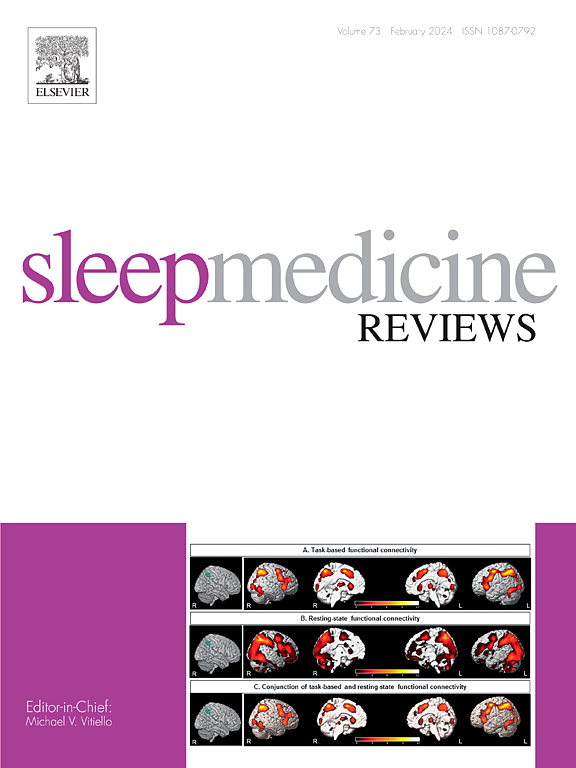肉毒杆菌毒素治疗神经系统疾病:对睡眠质量的偶然益处及其潜在机制
IF 9.7
1区 医学
Q1 CLINICAL NEUROLOGY
引用次数: 0
摘要
肉毒杆菌毒素(BoNT)仍然是局灶性和节段性肌张力障碍的金标准治疗方法,广泛用于治疗多动障碍、慢性疼痛和腺体分泌亢进。大量的临床试验表明BoNT有效地改善了这些神经系统疾病的核心症状及其经常相关的合并症,包括抑郁、焦虑和生活质量下降。值得注意的是,许多bont治疗的神经系统疾病与睡眠障碍同时发生,但睡眠结果仍未得到充分研究。本综述综合了BoNT治疗已建立的神经系统适应症(如神经性疼痛、慢性偏头痛、肌张力障碍、痉挛、唾液分泌、面肌痉挛、膀胱功能障碍)和原发性睡眠障碍(如不宁腿综合征、睡眠磨牙症、失眠)后睡眠结果的现有证据。因此,BoNT治疗可以通过调节血管舒缩张力、激素分泌、神经活动、情绪和疼痛感知等机制改善两类患者的睡眠结果。然而,更大规模、严格设计的随机对照试验对于明确证实这些治疗效果和阐明潜在的神经生物学机制至关重要。本文章由计算机程序翻译,如有差异,请以英文原文为准。
Botulinum toxin therapy for neurological disorders: Serendipitous benefits on sleep quality and underlying mechanisms
Botulinum toxin (BoNT) remains the gold standard treatment for focal and segmental dystonia and is widely used in managing hyperkinetic disorders, chronic pain, and glandular hypersecretion. Extensive clinical trials demonstrate that BoNT effectively ameliorates both the core symptoms of these neurological conditions and their frequently associated comorbidities, including depression, anxiety, and diminished quality of life. Notably, many BoNT-treated neurological disorders co-occur with sleep disturbances, yet sleep outcomes remain underexplored. This review synthesizes current evidence on sleep outcomes following BoNT treatment of both established neurological indications (e.g., neuropathic pain, chronic migraine, dystonia, spasticity, sialorrhea, hemifacial spasm, bladder dysfunction) and primary sleep disorders (e.g., restless legs syndrome, sleep bruxism, insomnia). As a result, BoNT treatment improves sleep outcomes across both categories, potentially through mechanisms involving modulation of vasomotor tone, hormonal secretion, neural activity, mood, and pain perception. However, larger, rigorously designed randomized controlled trials are essential to definitively confirm these therapeutic effects and elucidate the underlying neurobiological mechanisms.
求助全文
通过发布文献求助,成功后即可免费获取论文全文。
去求助
来源期刊

Sleep Medicine Reviews
医学-临床神经学
CiteScore
20.10
自引率
3.80%
发文量
107
期刊介绍:
Sleep Medicine Reviews offers global coverage of sleep disorders, exploring their origins, diagnosis, treatment, and implications for related conditions at both individual and public health levels.
Articles comprehensively review clinical information from peer-reviewed journals across various disciplines in sleep medicine, encompassing pulmonology, psychiatry, psychology, physiology, otolaryngology, pediatrics, geriatrics, cardiology, dentistry, nursing, neurology, and general medicine.
The journal features narrative reviews, systematic reviews, and editorials addressing areas of controversy, debate, and future research within the field.
 求助内容:
求助内容: 应助结果提醒方式:
应助结果提醒方式:


